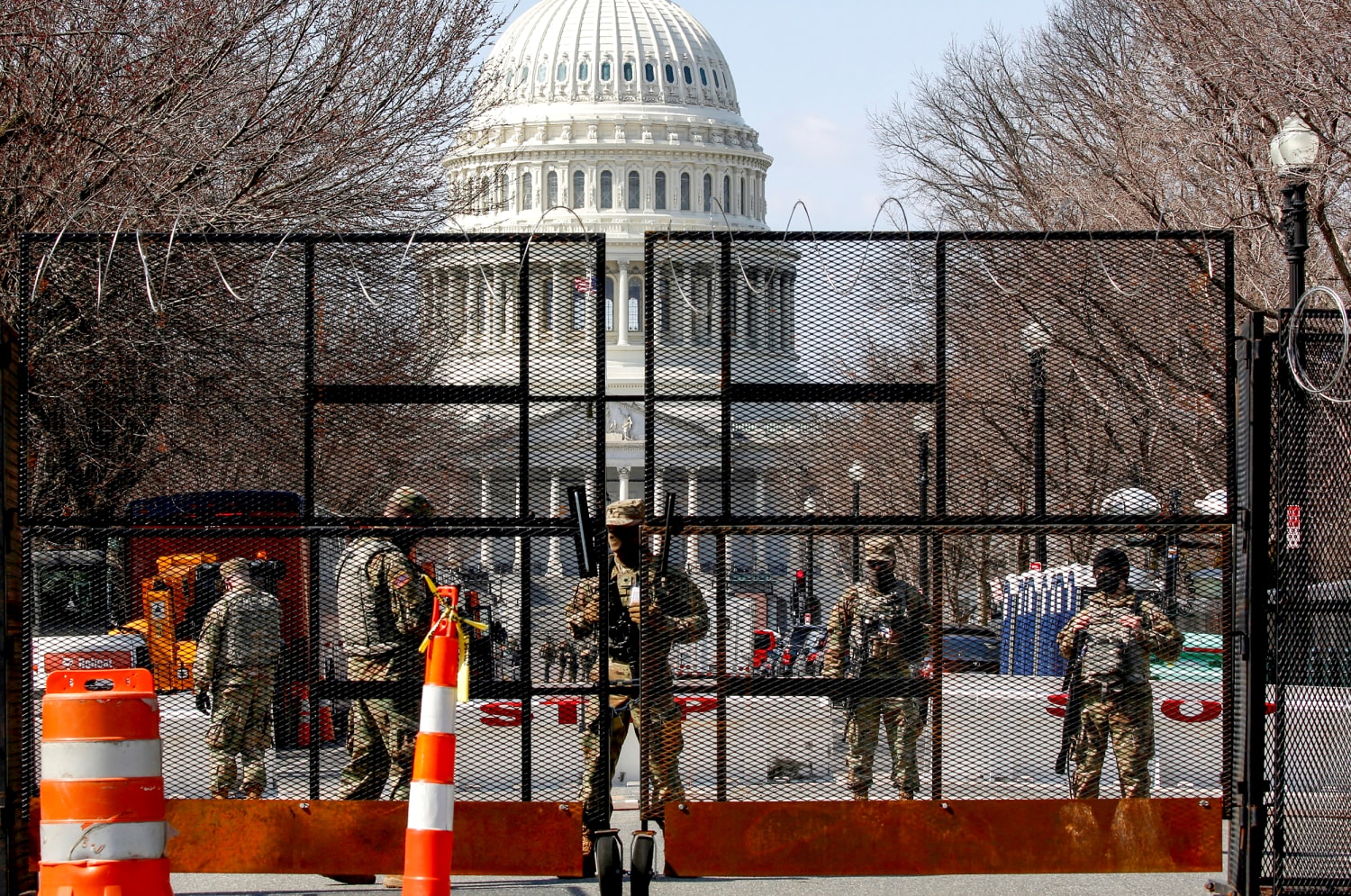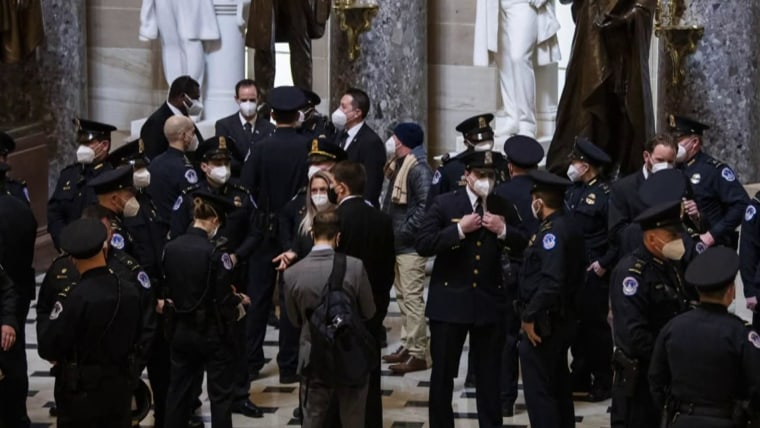Following the announcement by Capitol Police of a “possible plot to breach the Capitol by an identified militia group” on Thursday, the U.S. House of Representatives canceled its session for the day. It was a perfect example of how not to respond to an emerging terrorist threat.
We cannot allow the threat of a terrorist act, however concerning, to stop the regular work of our government officials; to do so will most likely encourage terrorist activity.
We are entering the third month since the national trauma of the Jan. 6 attack on Congress. What should have been a routine certification of the presidential election results became a dark moment in our history as a violent mob of thousands desecrated the Capitol. This disaster has laid bare not only the depths to which the last administration ultimately sank, but also, as my colleague Matthew Levitt has pointed out, revealed a rising domestic terrorist threat to the United States. So it’s not surprising that we may have faced a similar plot this week, and we should be prepared for more to come. That makes it essential that we take the right steps in responding to them.
The inexcusable, tragic security failure of Jan. 6 makes it completely understandable that the new threat Thursday caused great alarm — and especially that those who experienced the Capitol breach firsthand wanted to take more defensive measures this time around. But while the House’s decision to cancel its session is surely a well-meaning decision aimed at preserving representatives’ safety, it sends the message that we are susceptible to terrorist threats. We cannot allow the threat of a terrorist act, however concerning, to stop the regular work of our government officials; to do so will most likely encourage terrorist activity.
Terrorist actors thrive on disrupting the daily lives of civilians, especially government officials. This brings them publicity and notoriety, valuable commodities for groups lacking the manpower and materiel to engage in openly violent confrontation with government authorities. The militants believed to be behind the new plot set for Thursday were no doubt ecstatic that merely the danger of an attack was enough to get the House to cease its activities. (Thankfully, the Senate continued business as usual.)
The 1995 bombing of the Murrah Federal Building in Oklahoma City by anti-government terrorists drew attention to the militia movement —even though the attackers were not directly connected to a militia — spurring interest from and recruitment of individuals previously unaware of it. Last year, the Proud Boys, a previously little-known far-right group, gained nationwide notoriety when then-President Donald Trump told them to “stand back and stand by” in a presidential debate, with the group immediately beginning to produce logos and merchandise with the phrase emblazoned on them.
Unfortunately, as the white power movement affiliated with many of these groups grows, its adherents are surely watching and learning. A 2020 study by the Center for Strategic and International Studies found that in the United States, “far-right terrorism has significantly outpaced terrorism from other types of perpetrators.” In 2019, far-right extremists “perpetrated two thirds of the attacks and plots in the United States,” as well as 90 percent of those in the first half of 2020.
White supremacist militia groups have also increasingly taken on a transnational character reminiscent of the global jihadist movement that produced al-Qaeda and the Islamic State militant groups, with some of their members traveling to Ukraine to join like-minded groups involved in the ongoing Russo-Ukrainian War.
Following the Capitol riot, the Department of Homeland Security issued a terrorism advisory warning that these and other violent extremists “may be emboldened” by the event. The attention and interest the riot generated precipitated an explosion in calls for violence on Inauguration Day, evidence of emboldenment resulting from the perceived success of Jan. 6.
Appearing to give in to terrorist threats, as happened Thursday, risks encouraging them even further. The right response was the one President Joe Biden took on his inauguration — ramping up security, limiting public access and going on with the event as planned. This sends the message that we will not be deterred by threats and are well prepared if the extremists try to carry out their plots.
For their part, our security services are taking the right measures. In response to the March 4 scheme, Capitol Police stated, “We have already made significant security upgrades,” which include “establishing a physical structure and increasing manpower to ensure the protection of Congress, the public and our police officers.” Additionally, over 5,000 National Guard troops remain in Washington.
The rising threat of domestic violent extremism means we must learn to live with some measure of resilience. The closure of the House, even as the Senate continued its activities, relays a message of disarray, disunity and panic, which is exactly the kind of impact terrorists aim to achieve. If they can project this power without dispatching a single member to the scene and risking arrest or other punishment, so much the better from their perspective.
I was in Israel during the July 2014 war with Hamas, so I understand what it’s like to live with the daily fear of an attack. Rocket salvos launched from the Gaza Strip were frequent, which meant periodic runs to the bomb shelter. But daily life remained unaffected except in the places nearest to Gaza, with people elsewhere driving to work normally and parliamentary sessions continuing as planned. Once, when a rocket flew near my university campus in Herzliya, close to Tel Aviv, an ongoing examination was continued in a bomb shelter.
Knowing a rocket could fly over my head at any time was emotionally testing, but allowing it to get in the way of my daily life only to encourage more such threats would have been worse. The Israelis I interacted with generally shared this sense, especially those who live near the Gaza border and can spend weeks in bomb shelters, but still say they don’t intend to leave since that would only invite Hamas to intensify its activities across the country. We Americans will almost certainly not have to reach this level of resilience, but there is much for us to learn from it.
As difficult as it may sometimes feel, the worst thing we can do now is allow threats of terrorism to disrupt our daily lives. Going about our business as usual is the simplest measure we can take — as private citizens or elected officials — to fight terrorism.
Source: | This article originally belongs to Nbcnews.com











